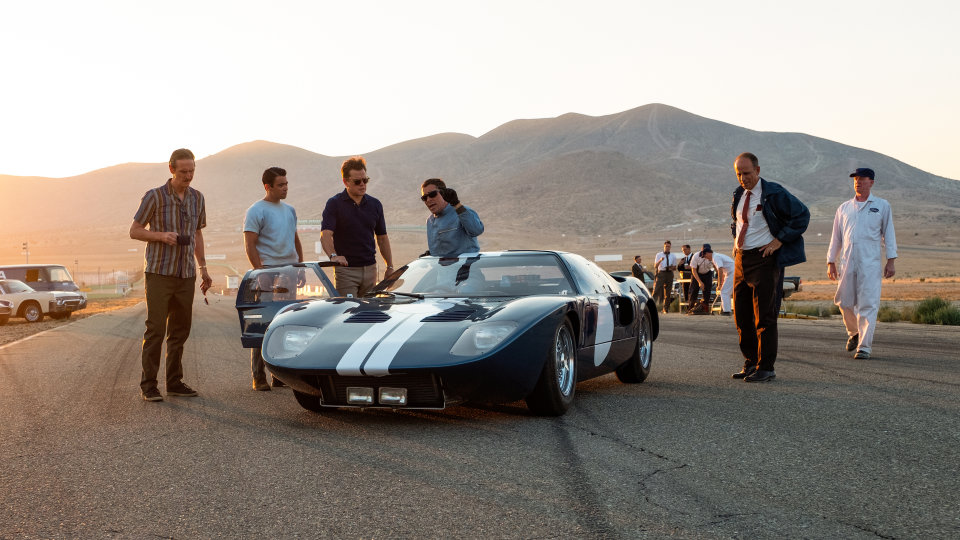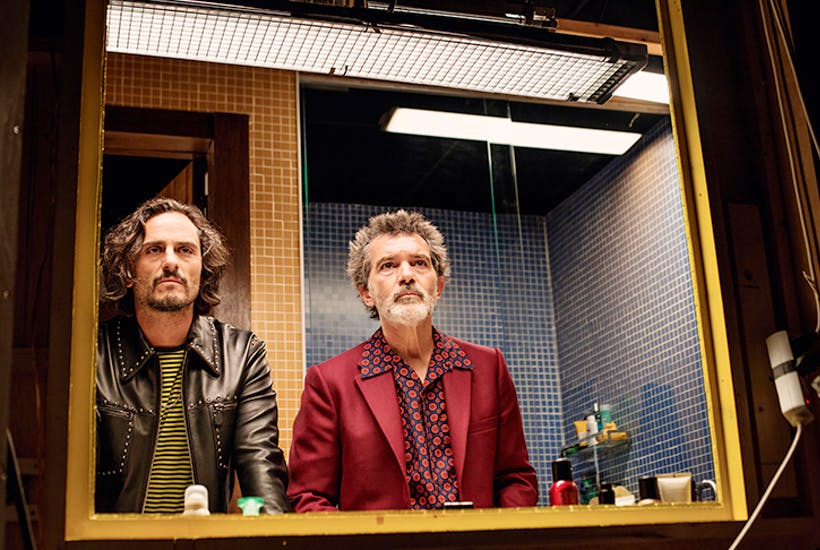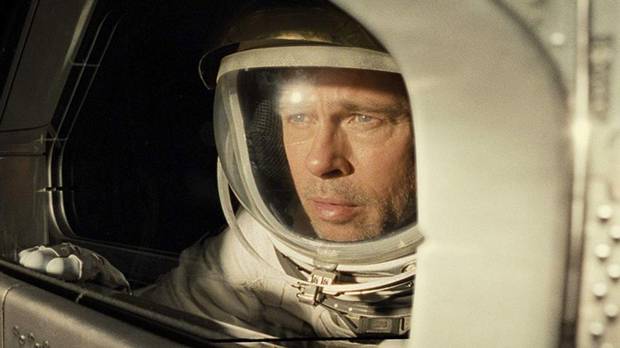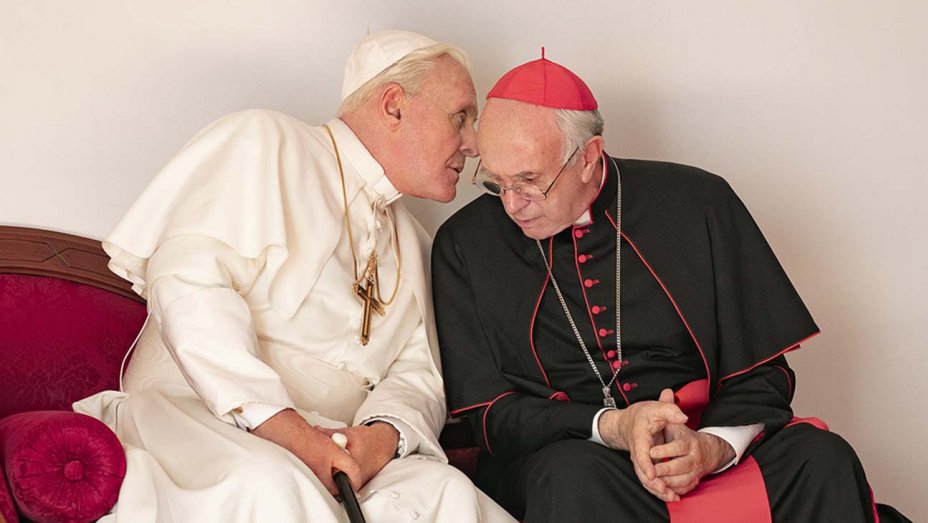
2019 has been a phenomenal year for cinema, and while it’s always exciting to see first time and up and coming directors leave their mark, much of the attention this year has been rightly focused on the living legends who have delivered some of their finest work. It’s often hard for a great director to live up to their own legacy and balance expectations as they work on future projects, but there’s ten filmmakers this year who’ve managed to top all their past films.
It’s often hard to instantly recognize whether a new film is the best that someone has ever made, but sometimes an achievement is so remarkable that it’s impossible to not identify it as a director’s crowning achievement. Many of these films deal with the nature of legacy, and help each of these filmmakers summarize the themes that they have worked on for the majority of their careers. Here are the top ten directors who made their best movie in 2019.
10. James Mangold, Ford v. Ferrari

Between the brilliant biographical film Walk the Line and the emotionally devastating superhero film Logan, James Mangold has established himself as one of the foremost directors of large scale Hollywood blockbusters who can make intelligent, insightful films for a mass audience. Ford v. Ferrari is Mangold at his most raw and exciting; it’s an unabashedly old-fashioned movie star two handler that celebrates the idea of the passionate underdogs fighting against the system. Mangold isn’t afraid to get technical, and Ford v. Ferrari finds engaging ways to show the process of preparing for the big race.
The racing scenes themselves are beautifully made, and the nature of the 24-hour Le Mans race shows how perseverance and strategy are necessary to pull off victory. Mangold also leaves a lot of room for reflection; both Carol Shelby (Matt Damon) and Ken Miles (Christian Bale) are men that love what they do, and the emotional weight carried by the film’s closing moments make it Mangold’s most exciting and accessible film to date.
9. Pedro Almodovar, Pain & Glory

Few filmmakers have been quite as provocative and experimental in the last few decades as Pedro Almodovar, and Pain & Glory is a different type of experiment for this master director. It’s a semi-autobiographical piece about the very nature of filmmaking and creative inspiration, and the parallels between the life of the character Salvador Mallo (Antonio Banderas) and Almodovar’s actual relationships make it a thought provoking and introspective work. Mallo sees filmmaking as a means of therapy, and through his stories is able to express all the repressed feelings and memories that he’s kept buried.
Mallo’s means of isolating his experiences is often challenging, and the clever framing devices Almodovar uses to show his selective memory and imagined experiences help to exemplify the themes of feeling unfulfilled or regretful. Visually inventive and often quite funny in the way Almodovar’s best are, Pain & Glory may be his most profound statement about the very nature of storytelling.
8. James Gray, Ad Astra

This decade has seen many bold and emotional space adventures, and Ad Astra stands as one of the absolute best films to explore how an intergalactic adventure can be both painfully lonely and breathtakingly beautiful all at once. James Gray has made great films before, including the tremendous epic The Lost City of Z and the uncomfortable and realistic The Immigrant, but Ad Astra is a summation of visceral achievement and emotional rawness. Brad Pitt’s character Roy McBride is an astronaut so removed from normalcy that he’s desensitized to wonder, and Pitt’s powerful performance as someone rediscovering their feelings is only made possible through a great director.
It’s a visually breathtaking experience, and Gray finds a unique vision of the future that includes the Moon being turned into a corporate hub, space pirates pillaging the lunar surface, and large scale interrogation rooms used to purge explorers of emotions. Max Richter’s enchanting score and the haunting voice over from Pitt make it an often somber watch, and Gray is unafraid to confront hard truths about the ways in which a father and son may reconnect. It’s a future sci-fi classic that will most definitely appear as a companion to the great visual achievements of the decade, and will go down as Gray’s grandest film to date.
7. Fernando Meirelles, The Two Popes

Fernando Meirelles has made impressive films before with the quintessential coming of age drama City of God and the exciting thriller The Constant Gardener, but he’s never made anything like The Two Popes before. Although it deals with one of the tumultuous periods in the history of the Catholic Church as power is transitioned from Pope Benedict XVI (Anthony Hopkins) to Pope Francis (Jonathan Pryce), the film is able to wrestle with the weight of pleasing the world’s entire population of Catholics while also being a funny buddy film about two men who are both coming to terms with the decisions of their lives. The surprising amount of popular culture references and comedic bickering between these two legendary figures makes for a film that is surprisingly touching and sweet.
Meirelles hasn’t lost any of the kinetic energy that defined his earlier films, and he’s able to explore the vastness of the Vatican City with a surprisingly light touch, as Francis’s exploration into its depths allows the audience to feel the mix of amazement and trepidation he feels when tasked with taking on his role. While Meirelles’s films are often dark and have a dour message about humanity’s future, The Two Popes is easily his most optimistic story to date.
6. Trey Edward Schults, Waves

Between Krisha and It Comes At Night, Trey Edward Schults has exploded off of the indie scene and emerged as one of the most exciting new voices in cinema. It’s hard to not see Waves as his most ambitious film to date, as the film’s divided structure includes a first half that is rich with anxiety and culminates in horrifyingly realistic moments, and a second half that is spiritual, meditative, and quite moving as it wrestles with the nature of forgiveness and loss. Many young filmmakers attempt to subvert the traditional storytelling structure in order to stand out or make a statement, but Schults doesn’t use his structure as a gimmick, as his distinct sectionalizing serves as an unprecedented form of cinematic healing.
This is also the most visually stunning film Schults has made and features his strongest characters. The story of a suburban family collapsing is empathetic to every character; while Ronald (Sterling K. Brown) isn’t an inherently bad guy, the film shows how fatherly expectations can break the spirit of his son Tyler (Kelvin Harrison Jr.), and the importance of loving someone for who they are and not for their achievements. Schults has disclosed that some aspects of the film are autobiographical, and this nuanced depiction of family crisis doesn’t feel manufactured at all.